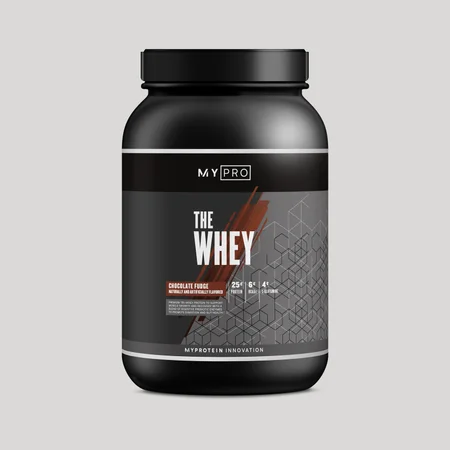
Sure, you've done some research but you still can't quite decide whether or not whey protein is for you...
So you know whey protein by name and reputation and have come to view it as synonymous with health, fitness, and muscle development and recovery, but for those of us out there looking to trim a few pounds, gain lean muscle or move down a pant size, does adding whey protein to your diet make you put on weight?
The short answer for skim readers is yes, but it is not as simple as that. The same as with any aspect of dietary additions, where your body is not making use of that additional fuel, or your balance of exercise and intake is off kilter, essentially too much whey and not enough exercise could result in more body fat. But don’t stop reading here. Before you go and bin this invaluable part of your gym supplement arsenal, there are some facts that you need to know.
First up, let’s take a look at what whey protein actually is.
What is whey protein?
Whey protein is found in milk, along with casein, which is the protein that is slowly digested making it ideal for long-haul slogs and for consuming before you sleep. Whey is created in the production of cheese, from the liquid whey that remains when curds come together. When whey protein is made the whey liquid is processed and refined to separate the proteins from the fats and lactose, and then dried to produce a powder.
The end result of whey protein as you know it in its powdered form is a concoction of different proteins including alpha-lactalbumin, beta-lactoglobulin, serum albumin, lactoferrin and immunoglobulins (antibodies). All proteins are made of amino acids, which are often referred to as the building blocks of protein. Whey protein, which is low in lactose, is a complete protein and contains all 9 essential amino acids. High amounts of branched-chain amino acids are responsible for better muscle protein synthesis.
There are several kinds of whey protein available as supplements, including whey isolate, concentrate, hydrolysate. Whey protein, as sold by Myprotein, has a high bioavailability, which means that it is readily, easily absorbed into your system in comparison to many food sources of protein.
So we know how it is used in our bodies where building muscle is concerned, but when you are not working out regularly where does all that whey go? Does it make you fat?
Does whey protein make you fat?
This question is similar to other regularly searched questions regarding your diet, such as does chicken make you fat? This is a good example of a chicken is a lean meat, low in the fats you don’t want, high in protein like whey. It is healthy, good for building muscle mass and also perfect for lean diets for cutting weight. Logically speaking, if you ate too much chicken that outbalanced your exercise regimen, you could expect to gain weight. Right?
It is widely considered a myth that whey protein makes you fat. Alone it does not make you fat and is, in fact, a staple in many fat-trimming diets. Our aforementioned simple answer that, yes, whey could make you fat is a matter of usage. If consumed in bigger quantities without an exercise plan to balance it out, it could attribute to weight gain. This is because of the fact that whey is a quality source of calories. All macronutrients, in fact, could lead to weight gain in excess. Fats and carbs are commonly seen as the usual suspects, but protein also is a factor in your daily calorie intake. Your body only has a need for a certain number of calories – as suggested in daily recommendations – depending on your lifestyle and the level of your regular exercise. For mass muscle gainers, a surplus of calories is a must. For dieters and lean gainers, the balance needs to be more on point and so a certain level of exercise must be maintained to avoid a surplus of calories.
Another side of the argument (without scientific studies) is that whey makes your body store more fat because of its effect on your insulin levels. It does this by raising your insulin levels, which are affected by the amount of energy you consume and the amount you burn off.
So if whey doesn’t make you gain weight, can it help you burn it?

Whey protein's other benefits
Whey can help you to increase your ability to burn fat when your body uses it as a protein source before exercise. This is called beta-oxidation wherein the fatty acid molecules in your cells will break down and produce acetyl-CoA, which is essential for your body’s ability to metabolize.
Whey protein also plays a role in thermogenesis, which is the body’s ability to convert calories into heat energies. Consuming whey protein can lead to more calories being burned, and thus losing weight, by burning more calories for your body to use as energy for muscle contraction
Whey protein also helps to regulate your hunger by increasing the production of the hormone, Cholecystokinin (CCK), which is a peptide hormone that stimulates fat and protein digestion.

Alice Pearson is a UKVRN Registered Associate Nutritionist and UK Anti‐Doping accredited advisor, having obtained a Bachelor’s of Science in Nutrition and a Master’s of Science in Sport Nutrition. She has a specialist interest in the use of sports supplements for improving health, fitness, and sport performance. Alice has experience working with both amateur and elite athletes, including providing nutritional support to Tranmere Rovers FC and Newcastle Falcons Rugby Club. Her nutritional guidance is always supported by evidence‐based research, which she keeps up to date through continuing professional development and independent learning. In her spare time, Alice loves travelling, hitting the gym, and getting stuck into a good book. Find out more about Alice's story here.









